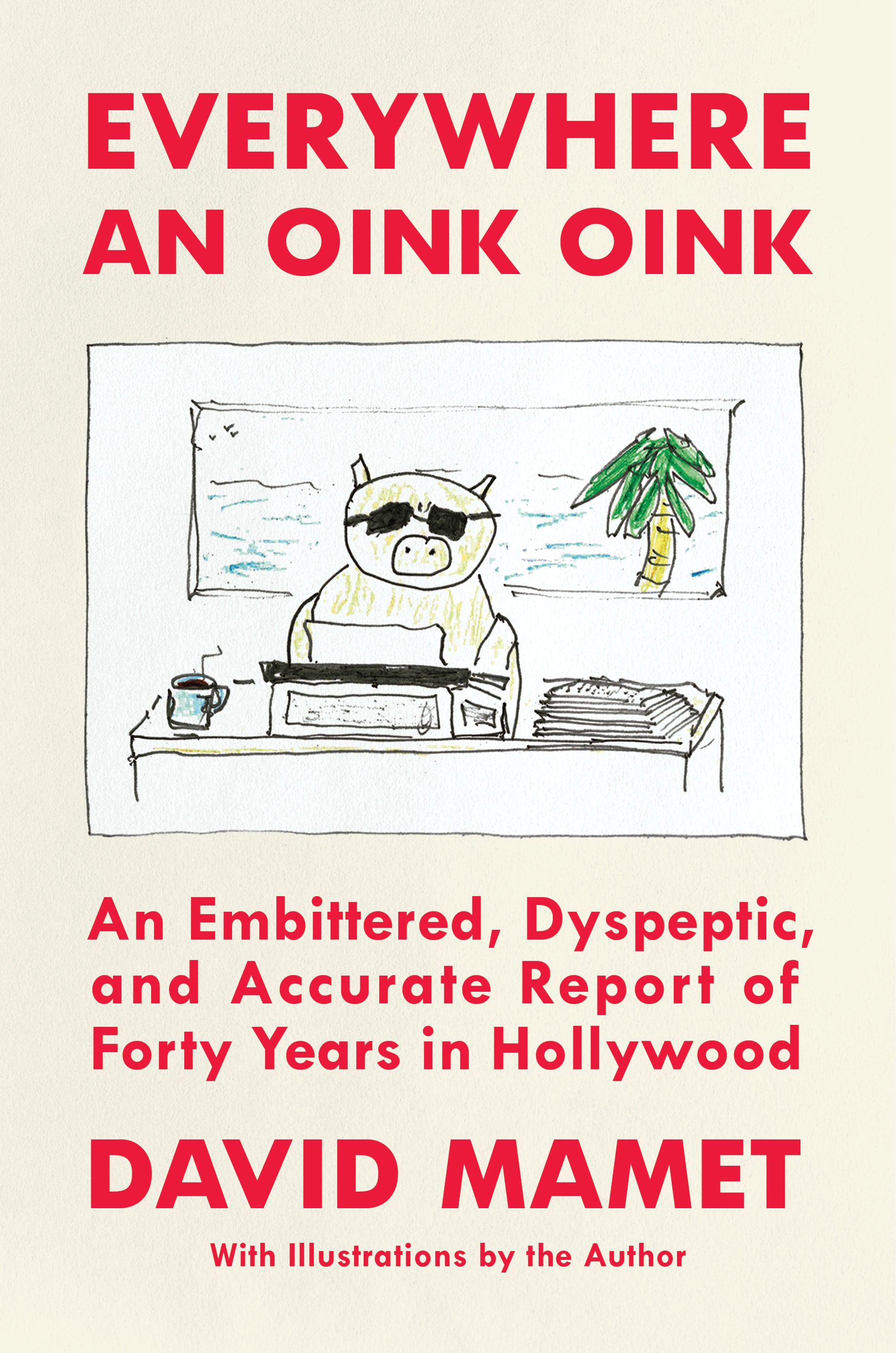Book Review: David Mamet screams at clouds in new collection of grievances about Hollywood
David Mamet takes on Hollywood in his new book

Just in time for Christmas, when you need a gift for that weird old uncle who is upset that everyone gets a trophy in youth soccer, comes a new David Mamet book.
“Everywhere an Oink Oink: An Embittered, Dyspeptic and Accurate Report of Forty Years in Hollywood” is a collection of observations, stories and aphorisms about Hollywood from one of America's foremost writers and, these days, provocateurs. It is virtually unreadable.
This is a book that resembles the idled rantings from a feverish, unsolicited email stuck in your spam folder. There are weird capitalizations, uneasy conclusions and the rat-a-tat of non-sequiturs all held together by bad faith. It's illustrated by Mamet's own cartoons, which echo a middle schooler's sense of humor and maturity.
He clearly hates film producers — “Village Idiots” is the nicest of adjectives — but he hates PC culture more. He lambasts "Diversity Porn," arguing that the logical extension of color-conscious casting is an Asian woman playing Harry Truman. He thinks modern culture has made frightened sheeps of men.
“Today in Los Angeles the teenage girls walk about virtually naked, and the males, rather than getting a pass for ogling the good clean fun, are terrified of even inadvertent gawking.” He won a Pulitzer Prize once. Now he's basically endorsing wet T-shirt contests.
Throughout is the stringent waft of misogyny. In one cartoon, Mamet asks “Who was the most fetching female in film history” over a drawing of Lassie. He includes jokes like this: “Ann-Margret is the only girl in Hollywood who still has her hyphen.” Again, this is a man who name-checks Herodotus and Kipling.
In one section, he tries to belittle entire topics of critical thought like a proto-incel. “Inequity, Gender Politics, Feminism, and like doctrines are like modern art: a first glance is sufficient. There’s no information to be gained from an in-depth study."
Mamet is the acclaimed author of theater classics such as “Glengarry Glen Ross,” “American Buffalo” and “Race,” all works struggling to find relevance in the modern age. His Hollywood input includes scripts for “The Untouchables,” “Heist,” “Wag the Dog” and “The Edge,” glorious all.
Sections in the book unusually begin with a tart statement, like “Trivia is gossip without malice” or “People flourish in hierarchy,” and then meander to some backstage trivia about Hollywood’s Golden Age before ending with something outrageous and unconnected, often with Nazis. Hitler appears on Page 8 and never really leaves.
To be fair, there are intriguing parts, like when he discusses the nuts and bolts of screenwriting: "The dialogue is of as little concern to a skilled screenwriter as the paint is to the mechanic.” And run-ins with Billy Wilder, Don Ameche, Sue Mengers and Bob Evans are fun.
But “Everywhere an Oink Oink” is a vanity project: He loves re-settling scores, boasts about being fired from jobs or thrown out of places — he got tossed from a Williams Sonoma for going in the wrong door and, when confronted, replied “It's alright, I'm an Illegal Immigrant.”
At one point, Mamet's editor is compelled to dismiss in a footnote one of the writer's so-called facts: “A complete fabrication.” But the wrong thing remains there. All over, Mamet repeats himself, another gripe for a book that feels unedited. One may loath his individual conclusions, but to get them twice makes the author even smaller, petty and unhinged.
“Either they or I are marching to the beat of a Different Drummer. In which event either one or many of us must be out of step,” he writes.
Yes, indeed.
___
AP book reviews: https://apnews.com/hub/book-reviews
Bookmark popover
Removed from bookmarks